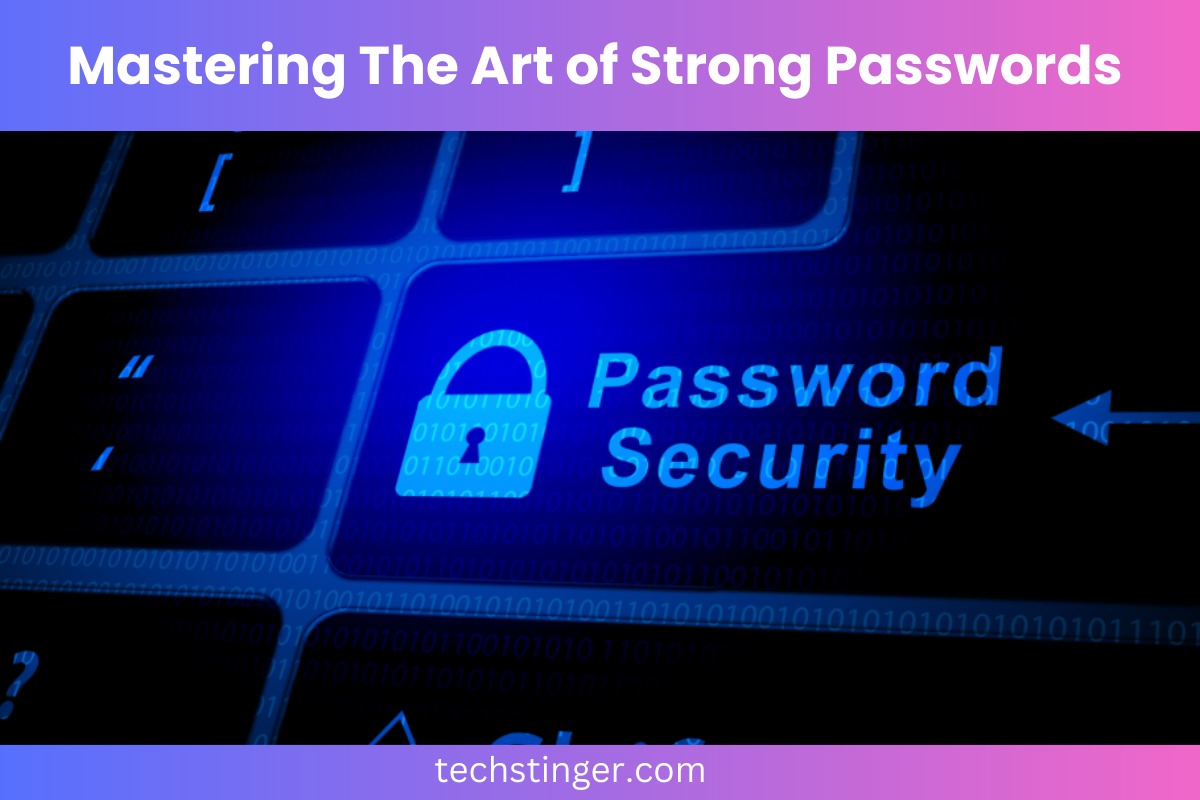Don’t Be a Hacker’s Easy Target: Mastering The Art of Strong Passwords

Securing our online presence has become crucial in the current digital age, as technology is ingrained in every aspect of our lives. By understanding the use of strong passwords, we can defend ourselves against online attacks in one of the easiest yet most efficient methods possible. Hackers are continuously looking for weaknesses to take advantage of. Don’t make yourself a target. To establish and maintain strong passwords that can protect your sensitive information, abide by these fundamental rules.
The Importance of Strong Passwords
Online security is built on the foundation of strong passwords. They serve as virtual locks, preventing unauthorised access to our personal information, financial information, and sensitive communications. Weak passwords are like to leaving your front door unsecured; hackers can quickly exploit this weakness.
Characteristics of a Strong Password
A strong password must adhere to a number of traits that raise its complexity and durability. A mix of capital and lower case letters, digits, and special characters is usually used to create strong passwords. Avoid using common words, expressions, and details that are simple to guess, such names or birthdays.
Avoiding Common Password Pitfalls
Avoiding common mistakes will help to guarantee that your password is as strong as possible. Avoid utilising dictionary words, consecutive numerals, or letters that are repeated. Additionally, avoid using readily available personal information, such as the name of your pet or your preferred sports team.
Utilizing Two-Factor Authentication (2FA)
Your online accounts are further secured with two-factor authentication. It requires a second method of authentication in addition to your password, like a text message code or biometric scan. Hackers will find it far more difficult as a result to acquire unauthorised access.
The Role of Password Managers
Keeping track of numerous secure passwords might be difficult. By securely saving your passwords and automatically filling them in when necessary, password managers lessen this strain. In addition to saving time, this promotes the usage of challenging, one-of-a-kind passwords for each account.
Regularly Updating Your Passwords
Updates to passwords on a regular basis are necessary to ensure online security. Even the strongest password can eventually be cracked. Regular password changes lower the possibility of unauthorised access.
Recognizing and Avoiding Phishing Attempts
Hackers frequently employ phishing to deceive people into disclosing their passwords or personal information. Be wary of unsolicited emails or messages that ask for sensitive information. Before acting, always be sure the source is reliable.
The Connection Between Strong Passwords and Online Security
In terms of overall internet security, strong passwords are really essential. They serve as the primary line of defence against a variety of cyberthreats, such as hacking, identity theft, and data breaches. You are actively securing your online identity by making the establishment of strong passwords a priority.
Conclusion
Learning the craft of creating strong passwords is a talent that cannot be ignored in a world where cyber threats are always evolving. You may greatly improve your online security by making complex, one-of-a-kind, and frequently updated passwords. Keep in mind that the time and effort you put into protecting your online reputation today could prevent harm from happening to you later.
FAQs
- How do you create a strong password?
A complex, challenging password is one that uses a combination of capital and lowercase letters, numbers, and special characters.
- Why is it dangerous to use the same password for several accounts?
The likelihood of a security breach increases when one password is used for several accounts. All other accounts are exposed if one is compromised.
- What exactly is MFA (multi-factor authentication)?
By requesting various forms of identification from users before granting access to an account, multi-factor authentication offers an extra layer of security.
- Use of password managers is it safe?
Advanced encryption is used by password managers to store your credentials safely. To choose a reliable and trustworthy password manager, nevertheless, is essential.

